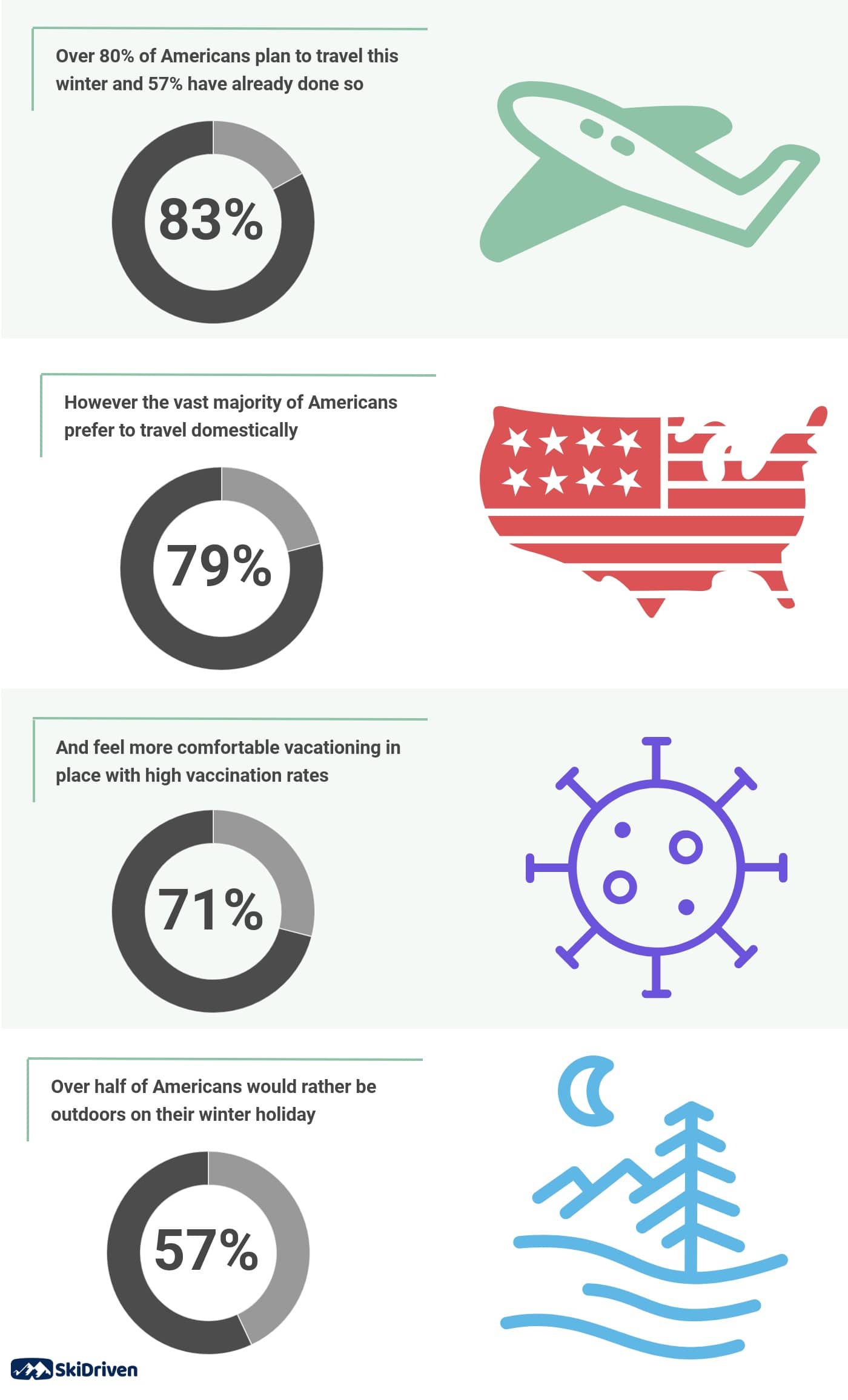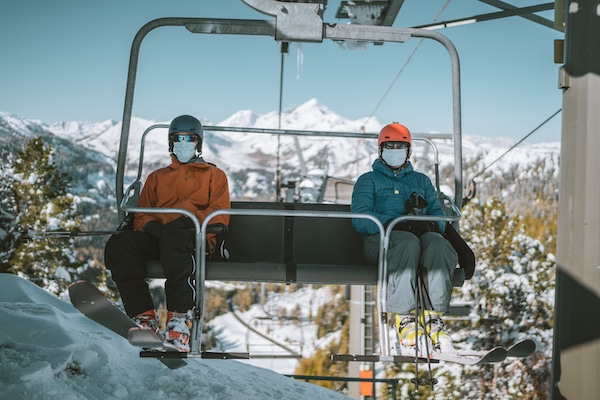The highly contagious Omicron variant means that COVID-19 has, once again, become an all-consuming aspect of life. But is the new wrinkle to the pandemic altering Americans’ vacation plans this winter?
According to a new survey of 802 U.S.-based respondents conducted by SkiDriven.com, the answer is a resounding “no.” Eighty-three percent report that the new, rapid spread of Omicron does not scare them enough to avoid traveling for vacation, with 57% already traveling at least once this winter.

Where to?
Despite their overwhelming willingness to travel for vacation, Americans are still discerning when it comes to their destination. Seventy-nine percent prefer to travel domestically rather than internationally, and only 7% say it “doesn’t matter, I’ll go anywhere.”
The top five U.S. states that vacationers are eyeing this winter are Colorado, California, Florida, Montana, and Georgia. All of those states fall within the bottom half of the country in terms of coronavirus cases per 100,000 people, with the outlier being Florida, which has the nation’s sixth-highest rate of infection.
Vacationers are most comfortable with the beach, a cruise, skiing, partying, or camping (in that order) this winter — with the ongoing popularity of cruises defying the mounting criticism of that industry over COVID-19 concerns.
Mode of transportation also plays a significant role in where Americans will choose to take vacation. Sixty-eight percent prefer to travel by car, compared to only 20% by plane.

The vaccination and testing factors
The issue of vaccination is weighing heavily in vacationers’ decisions this winter, with 71% stating that they would feel more comfortable in a resort or other venue where there is a vaccine mandate in place or high vaccination rates.
Meanwhile, 83% say that testing quarantine requirements are deterring them from traveling internationally.
How it compares to last year?
Last winter, SkiDriven.com also surveyed U.S. respondent’s willingness to travel — again at a time of rising COVID-19 cases. Similarly, the overwhelming majority (72%) still planned on traveling, albeit at lower rate when compared to this winter. Back then, 91% were more likely to travel domestically than internationally, which also shows a greater comfort in travel aboard this winter.
Where in the U.S. vacationers are likely to travel to this year compared to last also depicts a greater comfort amid the pandemic, with Vermont, Oregon, Maine, Wyoming, and Colorado making up the top 5 last winter — all with some of the lowest rates of COVID-19 deaths in the country at the time.
What about skiing?
The conditions of the pandemic provide a leg up for activities like skiing, as 57% of respondents feel more comfortable with outdoor sports.
Vaccination again comes into play for skiers, as 81% feel more comfortable skiing this year due to the widespread adoption and accessibility of vaccines. At the same time, 59% would still ski at a resort that that didn’t require employees to be vaccinated. Fifty-four percent wouldn’t go inside lodges or rent equipment if people weren’t required to wear masks, 47% would not ride on chairlifts that have no ride limit policy, and 62 percent would stay in a hotel located on a mountain.
For those who’ve already been skiing this season, their biggest complaints about the experience have been severe understaffing, long lift lines, higher prices, mask requirements indoors, and the limited amount of lift tickets.
Ultimately it’s clear that, as was the case during previous years of the pandemic, travel in general and skiing in particular are here to stay.

